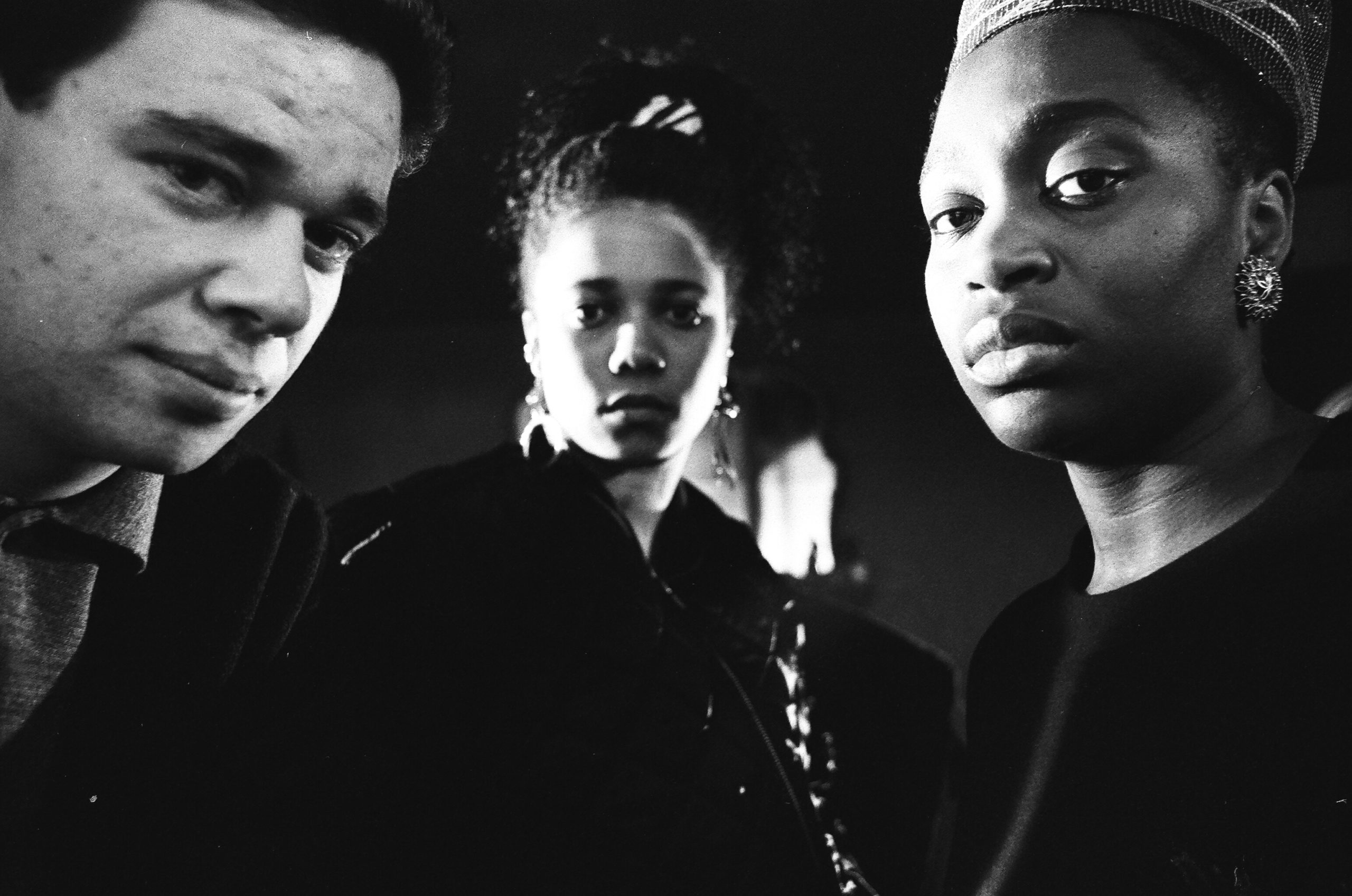Filmmaker Martina (Judah) Attille is a British citizen and has lived in London since 1961. She graduated in 1983 from Goldsmiths University, London, where she produced her first film, By Any Other Name (1983). On graduation, Attille accepted the offer of a six-month placement with the independent production company, Large Door, through a Channel Four Television trainee scheme and trained with Production Manager Janine Marmot on the second series of Visions, a documentary series about world cinema, produced by John Ellis, Keith Griffiths and Simon Hartog.
Attille became one of five founding members of the collective Sankofa Film & Video from 1983 to 1988, with Maureen Blackwood, Robert Crusz, Isaac Julian, and Nadine Marsh-Edwards. Attille developed her skills in script editing in the role of Producer on the collective’s first feature, The Passion of Remembrance (1986). Her seminal work for Sankofa Film & Video is Attille’s Writer/Director debut, Dreaming Rivers (1988) which features actors Corinne Skinner Carter, Angela Wynter, Nimmy March, Roderick Hart and Stefan Kalipha. The film has an original computer-generated score by Composer Shirley Thompson, Costume Design by Lorna Lee Lesley, and Set Design by artist Sonia Boyce. In addition, guidance from US Writer-Director Dianne Houston contributed to Attille’s artistic development.
Dreaming Rivers toured upstate New York in the film programme, Young British & Black (1988), organised by Coco Fusco and Ada Gay Griffin for New York-based distributor Third World Newsreel. The tour aimed to promote the films of Sankofa Film & Video and Black Audio Film Collective. Attille first met Coco Fusco at Viewpoints: A Conference on Women, Culture & Public Media (1986), organised by New York-based distributor Women Make Movies.
Historically, feminist praxis, anti-racism and representation in media production were common themes in the projects ‘for Black Women by Black Women’ Black Women and Representation in collaboration with Women in Sync (Four Corners, 1984), and the peer-to-peer 16mm film production workshop Black (feminine)—Exploring Images of Black Women (various London venues, 1986). Attille’s enquiry into the performativity of British black women captured on film continued in her AHRC TECHNE PhD research project, Africandescence, at the University of the Arts London and contributed to her curation of a film programme and podcast, Sonic Register: British black womxn and onscreen performativity for Sheffield International Documentary Festival 2021 Retrospective, Films belong to those who need them – fragments from the history of Black British Cinema.
Attille has contributed installations, images and essays to events and art publications including, Smile for Mirage: Enigmas of Race Difference and Desire (ICA, 1995), Smile #2 for The Fact of Blackness: Frantz Fanon and Visual Representation (1996), Still, in Rhapsodies in Black: The Art of the Harlem Renaissance (1997), Saint Michael Stewart, 1994, in Today I shall judge nothing that occurs, Lyle Ashton Harris (2017) and ©2021(gold) commissioned for the Tate Britain Display research publication, Works from Tate’s Collection: Ima-Abasi Okon (2021).
Documentation of Attille’s presence within the visual arts community exists in work by Sunil Gupta in his photo series for Sankofa Film & Video (1986), Ingrid Pollard, Self-Evident (1995), Sonia Boyce, The Devotional Wallpaper (2008) and Lubaina Himid, Thin Black Line(s): Moments and Connections (2015).
Martina (Judah) Attille has one son, Chris Chance, born in London in 1995.



